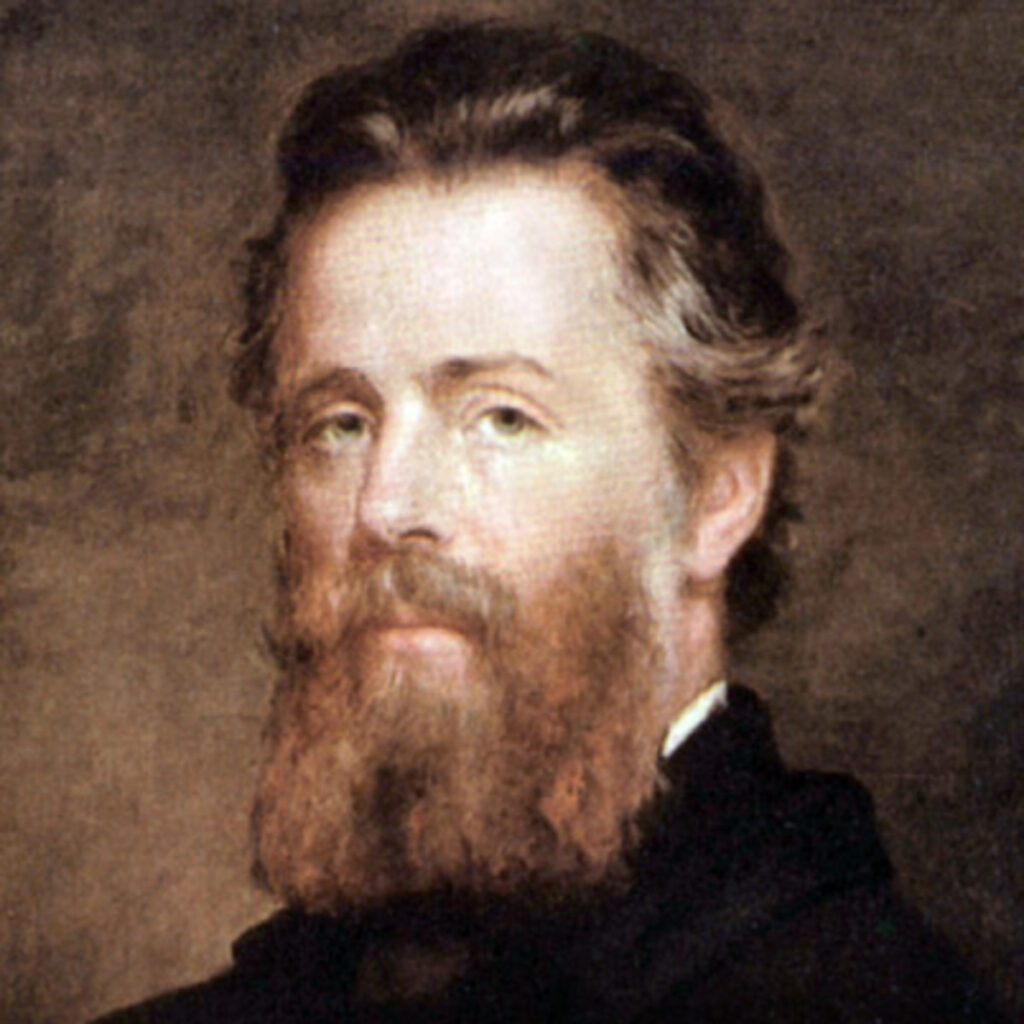
Herman Melville (1-August-1819 – 28-September-1891) was an American novelist, short story writer, and poet. Among his best-known works are Moby Dick (1851), Typee (1846), and Billy Budd, a posthumously published novella.
Melville’s works were not celebrated in his lifetime and he earned little from his books and poems. Moby-Dick, which has been touted as the greatest American novel ever written, was particularly poorly received when first released and it didn’t gain real popularity until the 1920’s and became considered as one of the great American novels.
Melville was born in New York City, the third child of a prosperous merchant. However, his father died when Melville was 12; leaving the family in financial straits. As a result, Melville never completed his education but had a great love of books and taught himself through reading and experience.
Melville took to sea in 1839 as a common sailor on merchant ships and whalers – an experience he described as: my Yale college and my Harvard. After that, he worked as a writer, bank clerk, salesperson farmhand, and school teacher and eventually moved to New York to take a position as a customs inspector.
Moby Dick uses a great deal of Biblical symbolism, especially in the names and allegorical roles of characters, containing 250 biblical references. Some literary critics see religion in Moby Dick as a struggle between Melville’s personal adoption of Unitarianism and his mother’s Dutch Reformed Calvinism. Perhaps it also reflects his own personal life struggles including his business failures and the death of his children.
The contemporary public rejection of Moby Dick was largely due to the fact that the novel shows equal respect for a wide variety of religious traditions and, at the same time, not-so-gently mocks the foolishness of religious extremism. In Moby Dick tribal pagans and New England Christians seem pretty similar—and frequently the pagans seem more ethical than some of the Christians around them. In contrast to both this complexly egalitarian attitude toward religiosity and the heavy satire that accompanies some of the religious commentary.
Melville has been described as a tentatively optimistic skeptic. The Unitarian Church was, for Melville, a safe place for him to explore his questions about life and God. Melville said: We cannot live only for ourselves. A thousand fibres connect us with our fellow men; and among those fibres, as sympathetic threads, our actions run as causes, and they come back to us as effects.
Melville died from cardiovascular disease in 1891.
